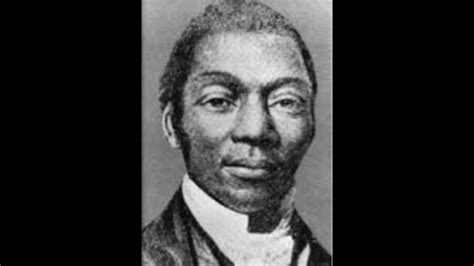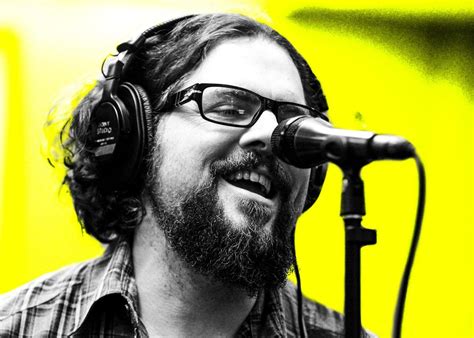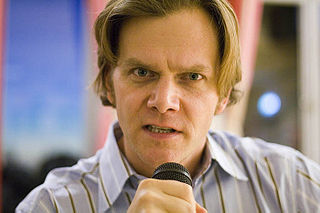A Quote by Jack Driscoll
As David Roderick says about writing, "It's not the tale that pleases, it's the telling," and I could not agree more.
Related Quotes
One describes a tale best by telling the tale. You see? The way one describes a story, to oneself or to the world, is by telling the story. It is a balancing act and it is a dream. The more accurate the map, the more it resembles the territory. The most accurate map possible would be the territory, and thus would be perfectly accurate and perfectly useless. The tale is the map that is the territory. You must remember this.
Stories are thick with meanings. You can fall in love with a story for what you think it says, but you can't know for certain where it will lead your listeners. If you're telling a tale to teach children to be generous, they may fix instead on the part where your hero hides in an olive jar, then spend the whole next day fighting about who gets to try it first. People take what they need from the stories they hear. The tale is often wiser than the teller.
My greatest strength as a writer is that I'm a storyteller. But, it was a long, hard struggle for me to make the transition from verbally telling stories to writing them. You'll note I don't dwell on descriptions in my writing, because I'm far more interested in telling the story. There are many better writers in this world, but you'd be hard pressed to find anyone more passionate about stories than I am.
To all the people that he hurt, I'm not - I can't be an apologist for David Koresh, but I feel for people that have had negative experiences at the hands of David. Let me put it that way. I think about those people, whether I agree with them on every point or not. Everyone has a right to their experience.
When someone tells you, 'I love you,' and then you feel, 'Oh, I must be worthy after all,' that's an illusion. That's not true. Or someone says, 'I hate you,' and you think, 'Oh, God, I knew it; I'm not very worthy,' that's not true either. Neither one of these thoughts hold any intrinsic reality. They are an overlay. When someone says, 'I love you,' he is telling you about himself, not you. When someone says, 'I hate you,' she is telling you about herself, not you. World views are self views-literally.
I've been with the project for like three years: creating it, pushing it. [There] becomes a certain doubt when you're pitching this story to people. ["The Land" is] a cautionary tale. It's not the brightest or best ending to a film when you're telling a cautionary tale about four kids, kids who are killing each other, kids who are products of the streets.
When [the saints] perform actions to God, then the soul says: 'Oh! that I could do what pleases God!' When they come to suffer any cross: 'Oh, that what God does might please me!' I labour to do what pleases God, and I labour that what God does shall please me: here is a Christian indeed, who shall endeavour both these. It is but one side of a Christian to endeavour to do what pleases God; you must as well endeavour to be pleased with what God does, and so you will come to be a complete Christian when you can do both, and that is the first thing in the excellence of this grace of contentment.
M. J. Putney's writing has always been magical; now that she has turned her hand to the telling of a fantasy tale, it sparkles on the page. Stolen Magic has to be one of the most delightful reads of the year, a witty, finely crafted tale that enchants from beginning to end. As always, Putney's intelligent wordsmithery, scholarship, eye for detail, and ability to bring to life irresistible characters add up to enjoyment on every page. Fast-moving and fun!
The man who tells the tale if he has a tale worth telling will know exactly what he is about and this business of the artist as a sort of starry-eyed inspired creature, dancing along, with his feet two or three feet above the surface of the earth, not really knowing what sort of prints he's leaving behind him, is nothing like the truth.

































